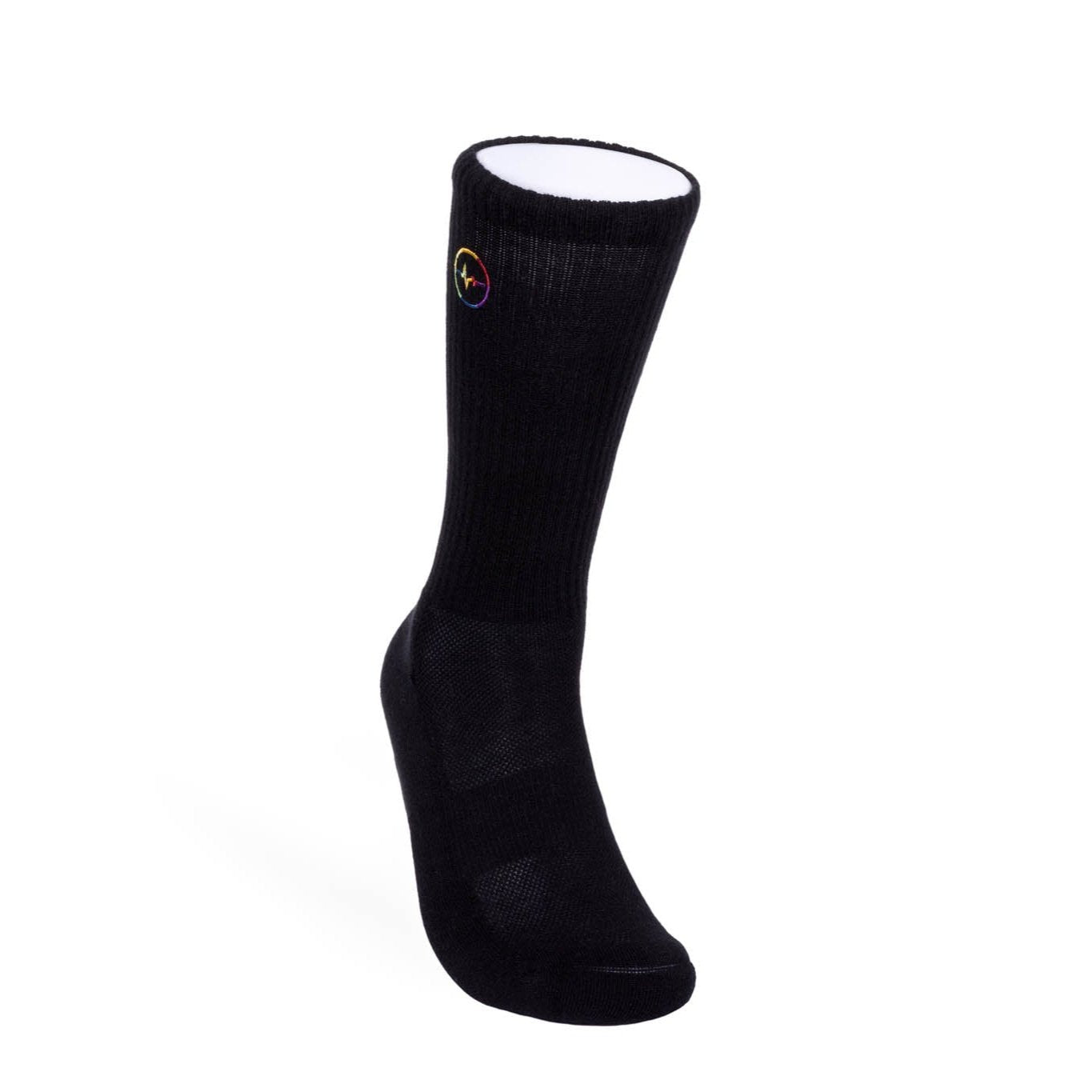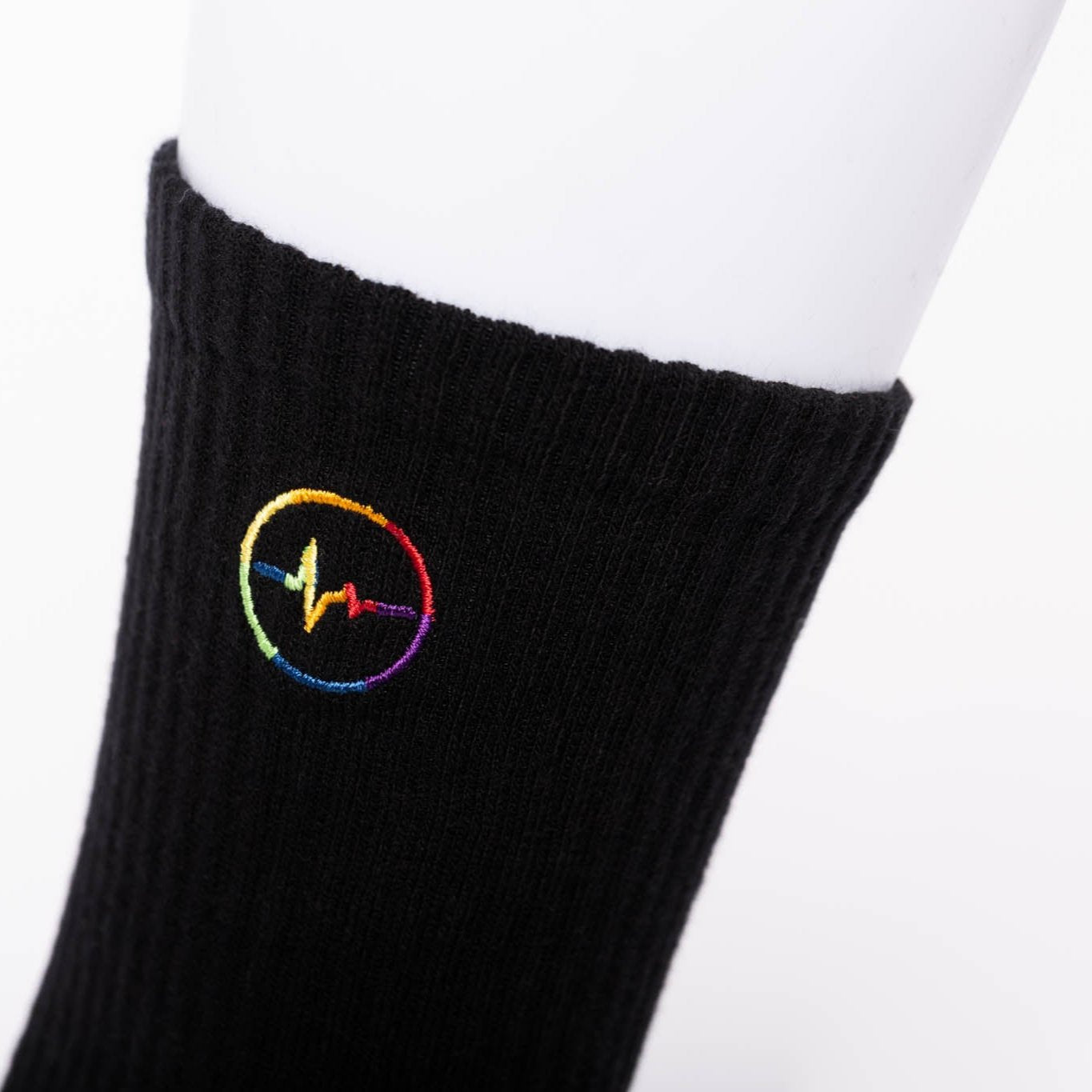


Black Heartbeat LGBTQI+ - Organic Cotton Socks
Impostos incluídos

powered by

% CO2e
Below category's global average
Product Life Cycle Analysis
0%
Raw Materials
Extraction and processing of raw materials (agriculture, mining, logging) create environmental impacts before manufacturing begins.
0%
Manufacturing
Production consumes energy, water, and other raw materials, resulting in emissions and natural resource depletion.
0%
Packaging
Packaging materials such as plastic, paper and metal are used to accommodate and transport the product, contributing for their carbon footprint.
0%
Distribution
The transportation of goods generates greenhouse gas emissions, influenced by transport type, distance, and logistics.
0%
Use Phase & End of Life
Product usage may consume energy and resources through a certain lifespan, while its disposal may result in landfilling, incineration and recycling, releasing greenhouse gases.
A product life cycle analysis (LCA), in terms of carbon footprint, assesses the total greenhouse gas emissions generated at each stage of a product’s life, from raw material extraction to production, distribution, use, and disposal.
These Black Heartbeat LGBTQI+ are more than just foot accessories. They are a statement of commitment to the environment and sustainability.
Made in Portugal, these socks are the result of a parnership between angurä and The Captain. Each pair is a declaration of a consicous style.
Choose these organic cotton socks and be part of the change toward a more sustainable world.
• Crafted with 168 needles and hand linked
• 80% Combed Organic Cotton
• 17% Polyamide
• 3% Elastane
• Made in Portugal
Escolher opções



Black Heartbeat LGBTQI+ - Organic Cotton Socks
Sale price€13.00 EUR
Impostos incluídos

powered by

% CO2e
Below category's global average
Product Life Cycle Analysis
0%
Raw Materials
Extraction and processing of raw materials (agriculture, mining, logging) create environmental impacts before manufacturing begins.
0%
Manufacturing
Production consumes energy, water, and other raw materials, resulting in emissions and natural resource depletion.
0%
Packaging
Packaging materials such as plastic, paper and metal are used to accommodate and transport the product, contributing for their carbon footprint.
0%
Distribution
The transportation of goods generates greenhouse gas emissions, influenced by transport type, distance, and logistics.
0%
Use Phase & End of Life
Product usage may consume energy and resources through a certain lifespan, while its disposal may result in landfilling, incineration and recycling, releasing greenhouse gases.
A product life cycle analysis (LCA), in terms of carbon footprint, assesses the total greenhouse gas emissions generated at each stage of a product’s life, from raw material extraction to production, distribution, use, and disposal.
